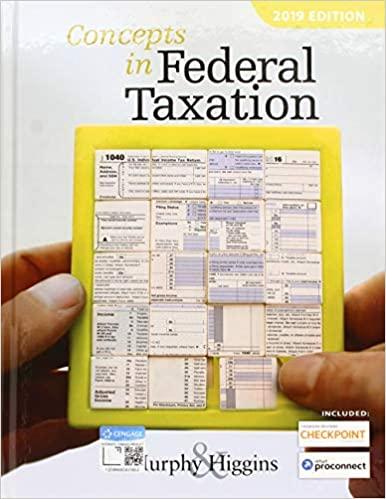For each of the following capital asset dispositions, determine whether the taxpayer has realized a gain or
Question:
For each of the following capital asset dispositions, determine whether the taxpayer has realized a gain or loss and whether that gain or loss is short-term or long-term:
a. Larry's aunt June dies on May 4, 2018. He inherits some land that she purchased in 1999 for $2,000. On May 4, 2018, the land is worth $40,000. Larry receives title to the land on October 15, 2018, and sells it on November 27, 2018, for $40,000. He pays $3,000 in commissions and other selling expenses.
b. Sterling receives 4,000 shares of Suburb Corporation stock as a birthday present from his mother-in-law on May 6, 2018. His mother-in-law had paid $18,000 for the stock 8 years earlier. On May 6, 2018, the stock has a fair market value of $4,000. On June 18, 2018, Sterling sells 1,000 shares of the stock for $800.
c. Assume the same facts as in part b. Suburb Corporation becomes the target of a takeover attempt in July, and its stock soars. Sterling sells the remaining 3,000 shares for $19,000 on August 6, 2018.
d. Bert owns 1,000 shares of Crooner Capital Corporation common stock for which he paid $8,000 in 2011. On March 13, 2017, Crooner declares a dividend of 1 share of preferred stock for each 10 shares of common stock owned. On the date the preferred shares are distributed, Crooner’s common shares are selling for $7 per share, and its preferred shares are selling for $10 per share. On November 14, 2018, Bert sells the 100 preferred shares for $1,100.
Step by Step Answer:

Concepts In Federal Taxation
ISBN: 9781337702621
26th Edition
Authors: Kevin E. Murphy, Mark Higgins





